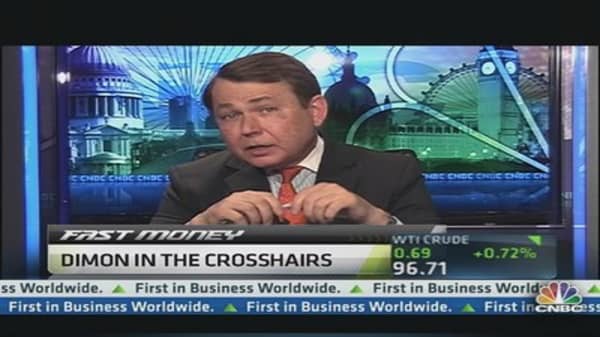Ahead of a vote on separating JPMorgan's CEO and chairman roles that could push out Jamie Dimon, Brad Hintz of Sanford Bernstein said Monday that such a shift would have no benefit for the company's stock price.
Hintz cited academic research showing that demotion of a standing chairman would push a company's share price lower, unless the executive was a poor performer.
"If it's a bad-performing company, it's good," Hintz said. "It's a good-performing company, it's bad."
On CNBC's "Fast Money," the equity research analyst said that Dimon didn't appear "to be a monarchical ruler."
(Read More: Trading Jamie Dimon's Possible JPM Exit)
"He's got a leading director, Lee Raymond, who can certainly stand up to him. And so the issue on this is, 'Do we have balance of power at JPM?' It may not be theoretically the best model, but it seems like a pretty good model," Hintz added.
"To me, the issue on this is all downside. If this gets taken away, it adds downside to the stock."
However, if Dimon remains in both roles at JPMorgan, the financial giant would be able to participate in the recovery, he said.
(Read More: Jamie Dimon Vote: A New Referendum on Governance)
Hintz also said that while executives weren't irreplaceable, forcing out Dimon would add "an uncertainty to board action going forward. It would not be good."
Asked to assess the "Jamie Dimon premium" for JPMorgan, Hintz demurred.
"There's no model to look for for this," he said. "I've tried to find a company that has thrown out a capable executive or an executive who left on his own. There really isn't a good history to look for."



